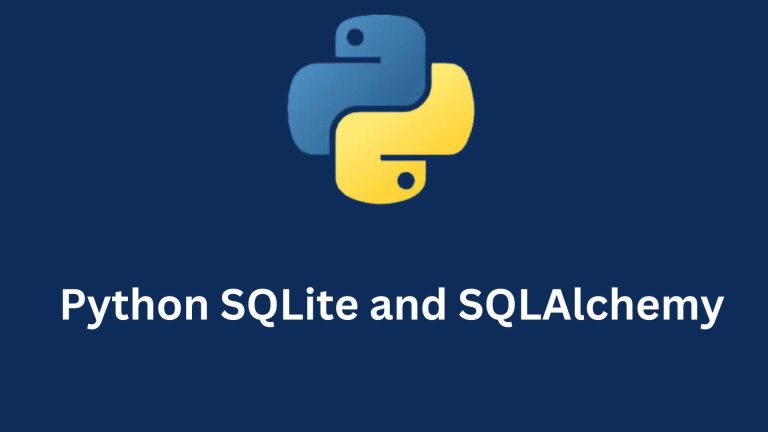In today’s digital era, the field of data science has emerged as a crucial component of Computer Science Engineering (CSE) and Information Technology (IT) education in India. Mastering the required skills in data science is imperative for students aspiring to excel in these domains.
Mastering Data Science Fundamentals in Engineering Education
Data analysts should understand that Data Science is a multidisciplinary domain that employs scientific approaches, algorithms, and frameworks to derive insights and knowledge from both organized and unorganized data. It incorporates a range of methodologies including data mining, machine learning, statistical analysis, and data visualization to scrutinize and comprehend intricate data collections.
- Core Components of Data Science:
- Data Acquisition: Gathering data from various sources including databases, sensors, social media, etc.
- Data Cleaning: Preprocessing and transforming raw data to remove inconsistencies, errors, and missing values.
- Data Analysis: Applying statistical methods and machine learning algorithms to extract meaningful patterns and insights from the data.
- Data Visualization: Presenting the analyzed data visually through charts, graphs, and dashboards for easy understanding.
- Role of Data Scientists:
- Data scientists are professionals skilled in programming, statistics, and domain knowledge who work on analyzing and interpreting complex data sets.
- They utilize their expertise to solve business problems, make data-driven decisions, and develop predictive models for future trends.
- Applications of Data Science:
- Predictive Analytics: Forecasting future trends and outcomes based on historical data.
- Fraud Detection: Identifying suspicious activities and transactions in financial systems.
- Recommendation Systems: Suggest personalized products or content based on user preferences.
- Health Informatics: Analyzing medical data to improve patient care and treatment outcomes.
- Natural Language Processing (NLP): Understanding and generating human language for applications like chatbots and sentiment analysis.
To excel in the multifaceted realm of data science, aspiring analysts must comprehend its diverse methodologies and applications. We advocate for our Data Science Mastery program, providing structured modules and expert guidance to cultivate proficiency in data acquisition, cleaning, analysis, visualization, and the strategic utilization of predictive models across various domains.

Relevance of Data Science in CSE and IT Engineering:
Prospective data analysts should understand that data science is integral to computer science and information technology engineering. It empowers professionals to derive valuable insights from large datasets, improving decision-making, optimizing system performance, and devising innovative solutions to complex challenges in these domains.
- Addressing Big Data Challenges:
- With the exponential growth of data in various industries, there is a high demand for professionals who can manage and analyze large data sets efficiently.
- Data science equips CSE and IT engineering students with the skills needed to tackle big data challenges effectively.
- Industry Demand and Job Opportunities:
- Data science skills are highly sought after in industries such as e-commerce, finance, healthcare, and marketing.
- CSE and IT engineering graduates with expertise in data science are well-positioned to secure lucrative job opportunities in these sectors.
- Enhanced Decision-Making:
- Data-driven decision-making is becoming increasingly crucial for businesses to gain a competitive edge.
- By integrating data science into their curriculum, CSE and IT engineering education empower students to make informed decisions based on data analysis and insights.
- Innovation and Technological Advancement:
- Data science plays a pivotal role in driving innovation and technological advancement across various domains.
- Through projects and research in data science, CSE and IT engineering students can contribute to groundbreaking discoveries and advancements in technology.
- Interdisciplinary Collaboration:
- Data science bridges the gap between computer science, statistics, and domain-specific knowledge.
- By fostering interdisciplinary collaboration, CSE and IT engineering education prepare students to work effectively in diverse teams and solve complex real-world problems.
To fully grasp the intricacies of data science and its applications in computer science and IT engineering, aspiring professionals need structured guidance and mentorship. Our Data Science Mastery program offers comprehensive modules and expert mentorship, empowering individuals to excel in tackling big data challenges and driving innovation across industries.
Mastering Data Science: Essential Skills for Proficiency
Data science students must grasp that essential skills in this field encompass proficiency in programming languages like Python or R, solid statistical and mathematical capabilities for data analysis, and adept communication skills to articulate insights and discoveries to diverse audiences. Moreover, a deep understanding of machine learning algorithms and techniques is indispensable for constructing predictive models and extracting meaningful insights from data.
Statistical Analysis:
- Foundational Understanding: Mastery of statistical concepts such as probability distributions, hypothesis testing, regression analysis, and experimental design forms the cornerstone of data science expertise.
- Data Exploration Techniques: Proficiency in exploratory data analysis (EDA) techniques like descriptive statistics, correlation analysis, and data profiling empowers data scientists to derive valuable insights from raw datasets.
- Statistical Modeling: Competence in applying advanced statistical models like Bayesian inference, time series analysis, and multivariate analysis enables accurate predictions and informed decision-making.
Programming Proficiency:
- Language Proficiency: Mastery of programming languages like Python and R, along with libraries such as NumPy, Pandas, and Scikit-learn, facilitates efficient data manipulation, analysis, and model implementation.
- Algorithmic Efficiency: The ability to optimize code for performance and scalability, leveraging techniques like parallel computing, memory management, and algorithm optimization, enhances productivity and model deployment.
- Version Control: Proficiency in version control systems like Git enables collaborative development, code management, and reproducibility, ensuring transparency and accountability in data science projects.
Data Visualization:
- Visual Storytelling: Proficiency in crafting compelling data narratives through visualization techniques like charts, graphs, and interactive dashboards enhances communication and facilitates stakeholder understanding.
- Visualization Tools: Mastery of tools like Matplotlib, Seaborn, Plotly, and Tableau enables the creation of aesthetically pleasing and informative visualizations, effectively conveying insights and trends hidden within data.
- User Experience Design: Understanding of user experience (UX) principles ensures intuitive design and interactivity in data visualizations, optimizing user engagement and comprehension.
Machine Learning and Artificial Intelligence:
- Algorithm Selection: Proficiency in choosing appropriate machine learning algorithms based on problem characteristics, data type, and desired outcomes ensures model effectiveness and efficiency.
- Model Evaluation: Competence in evaluation metrics and techniques such as cross-validation, ROC curves, and confusion matrices enables rigorous assessment of model performance and generalization ability.
- Deep Learning: Understanding of neural network architectures, optimization algorithms, and frameworks like TensorFlow and PyTorch empowers data scientists to tackle complex, unstructured data and extract meaningful patterns.
Domain Knowledge:
- Industry Expertise: In-depth understanding of specific domains such as finance, healthcare, or marketing enables contextualization of data insights, identification of relevant variables, and alignment of analytics solutions with business objectives.
- Subject Matter Expertise: Collaboration with domain experts fosters domain-specific insights, validation of analytical findings, and refinement of models, ensuring relevance and applicability in real-world scenarios.
- Regulatory Compliance: Awareness of industry regulations and ethical considerations ensures responsible data handling, privacy protection, and compliance with legal standards, safeguarding against potential risks and liabilities.
To systematically master all essential skills, one requires appropriate mentors and guides to navigate this significant subject effectively, with a proven track record. Therefore, we recommend that aspiring data analysts subscribe to our Data Science Mastery program. This program equips them with self-learning modules along with expert mentorship.
Challenges Faced by Students in Data Science
Heavy Course Load
- Intensive Curriculum: Data science programs often encompass a wide range of subjects, including statistics, machine learning, data visualization, and programming, which can be overwhelming for students.
- Project-Based Learning: Many courses require the completion of complex projects that integrate multiple aspects of data science, demanding significant time and effort.
- Frequent Assessments: Regular quizzes, assignments, and exams to ensure mastery of diverse topics can lead to continuous stress and burnout.
- Balancing Act: Students often struggle to manage coursework alongside internships, research, and extracurricular activities, leading to time management issues.
Lack of Guidance
- Insufficient Mentorship: Many students do not have access to experienced mentors who can provide direction and support, particularly in navigating career paths and advanced research topics.
- Skill Gap Awareness: Without proper guidance, students may not fully understand the specific skills and knowledge required by the industry, resulting in a mismatch between their education and job market demands.
- Networking Opportunities: Limited opportunities for networking with professionals and peers can hinder the development of a professional network, essential for career growth in data science.
- Career Path Ambiguity: The broad and evolving nature of data science can leave students uncertain about which specialization to pursue and how to align their academic choices with their career goals.
Limited Resources
- Access to Data: High-quality, real-world datasets are crucial for practical learning but are often difficult for students to obtain due to privacy concerns and licensing restrictions.
- Computational Power: Advanced data science tasks, particularly in machine learning and deep learning, require significant computational resources, which may not be available to all students.
- Educational Materials: Up-to-date textbooks, online courses, and research papers are essential for staying current with industry trends but can be costly or hard to access.
- Software and Tools: Proficiency in various data science tools and platforms (e.g., TensorFlow, Hadoop) is necessary, yet access to these resources can be limited in some educational institutions.
To strategically address these hurdles and optimize learning outcomes, aspiring data scientists must seek targeted solutions. Our Data Science Mastery program offers precisely tailored modules and expert mentorship, empowering students to thrive in their careers.

Overcoming Challenges Faced by Students in Data Science
Heavy Course Load
- Effective Time Management: Encourage students to use tools like calendars and project management software to organize their tasks and prioritize them effectively.
- Streamlined Curriculum: Academic institutions can refine course content to focus on core skills and essential knowledge, reducing redundancy and workload.
- Incremental Learning: Introduce concepts gradually and reinforce them through smaller, more frequent assessments to avoid cramming and burnout.
- Collaborative Projects: Promote team-based projects to distribute the workload and foster peer learning, making complex tasks more manageable.
Lack of Guidance
- Mentorship Programs: Establish mentorship programs pairing students with experienced professionals or alumni who can provide advice and support.
- Career Counseling: Offer regular career counseling sessions to help students understand industry demands, identify skill gaps, and plan their career paths.
- Networking Events: Organize workshops, webinars, and networking events with industry experts to help students build professional connections.
- Clear Pathways: Provide clear information about various specializations within data science and related career opportunities, helping students make informed decisions about their studies.
Limited Resources
- Open Data Sources: Guide students to publicly available datasets from platforms like Kaggle, UCI Machine Learning Repository, and government databases for practical learning.
- Cloud Computing Services: Partner with cloud service providers (e.g., AWS, Google Cloud) to offer students access to necessary computational resources through educational grants or credits.
- Affordable Educational Materials: Encourage the use of open educational resources (OER) and free online courses (e.g., Coursera, edX) to supplement traditional textbooks and materials.
- Software Access: Negotiate with software vendors to provide student licenses for essential tools and platforms at reduced or no cost, ensuring all students have the tools they need for their coursework.
To foster academic and career success in data science, institutions must provide robust support systems. Our Data Science Mastery program offers tailored mentorship and comprehensive modules, empowering students to master essential skills effectively and achieve their goals.
Importance of Planning in Skill Acquisition:
Effective planning provides a structured approach to acquiring new skills, ensuring efficient use of time and resources, and helping track progress toward mastery.
- Structured Learning Pathways:
- Enables efficient coverage of core topics like machine learning, statistics, and data visualization.
- Facilitates progressive learning, ensuring foundational knowledge before advancing to complex concepts.
- Resource Allocation:
- Ensures optimal use of resources such as time, online courses, books, and professional networks.
- Helps in identifying and leveraging the best tools and platforms for learning.
- Tracking Progress:
- Allows for monitoring growth and areas needing improvement through regular assessments and feedback.
- Aids in staying motivated and focused by celebrating milestones and achievements.
Setting Clear Goals:
Defining specific, measurable goals clarifies the path to skill acquisition, motivating focused effort and enabling precise progress tracking.
- Specificity in Skills:
- Define precise skills such as mastering Python for data analysis, understanding deep learning algorithms, or proficiency in SQL.
- Goals should include both technical and soft skills, such as communication and project management.
- Measurable Outcomes:
- Establish metrics for success, such as completing a set number of projects, obtaining certifications, or contributing to open-source projects.
- Regular self-assessments and peer reviews to measure progress.
- Realistic and Time-Bound:
- Set achievable goals within a specific timeframe to maintain motivation and avoid burnout.
- Break down long-term objectives into short-term, manageable tasks.
Time Management:
Allocating dedicated time for skill development ensures consistent practice, reduces procrastination, and balances learning with other responsibilities.
- Effective Scheduling:
- Allocate specific time slots for different learning activities like reading research papers, practicing coding, and attending webinars.
- Use tools like calendars and task managers to organize study sessions and project work.
- Avoiding Procrastination:
- Implement techniques such as the Pomodoro Technique or time-blocking to stay focused and productive.
- Set deadlines for completing courses, projects, and practice exercises.
- Balancing Learning and Application:
- Ensure a mix of theoretical learning and practical application through projects and real-world problem-solving.
- Schedule regular intervals for revisiting and reinforcing previous topics to ensure retention.

Consistency and Discipline:
Regular, disciplined practice reinforces learning, builds muscle memory, and helps overcome the challenges of skill acquisition.
- Regular Practice:
- Engage in daily or weekly practice sessions to maintain and enhance skills.
- Consistency in practice helps in developing a deeper understanding and mastery of complex data science concepts.
- Building Habits:
- Create a routine that incorporates continuous learning, such as daily coding challenges, reading industry blogs, or participating in forums.
- Leverage habit-forming strategies to integrate learning into daily activities.
- Accountability Mechanisms:
- Join study groups or find a mentor to stay accountable and receive constructive feedback.
- Regularly participate in hackathons, competitions, or collaborative projects to stay motivated and disciplined.
Prioritization of Learning Areas:
Focusing on the most critical aspects of a skill allows for targeted improvement, making the learning process more efficient and effective.
- Core Competencies First:
- Focus initially on essential areas such as data wrangling, statistical analysis, and foundational machine learning algorithms.
- Mastering core skills provides a strong base for exploring advanced topics.
- Industry-Relevant Skills:
- Identify and prioritize skills that are in high demand in the data science job market, such as proficiency in TensorFlow, PyTorch, or cloud computing platforms.
- Stay updated with the latest trends and technologies through continuous learning.
- Project-Based Learning:
- Prioritize projects that offer practical experience and address real-world problems.
- Projects should cover diverse areas like natural language processing, computer vision, and big data to ensure a well-rounded skill set.
Effective planning and structured learning pathways are vital for mastering data science skills. Our Data Science Mastery program offers expert mentorship and self-learning modules to guide aspiring analysts through efficient skill acquisition and real-world project experience.
Strategies for Effective Planning:
Learn to strategize your plans efficiently by understanding the importance of prioritization, time management, and adaptability, ensuring smoother execution of tasks and achieving desired outcomes.
- Goal Alignment: Align your data science goals with broader organizational objectives to ensure relevance and impact.
- SMART Goals: Break down data science projects into Specific, Measurable, Achievable, Relevant, and Time-bound objectives for clarity and focus.
- Risk Assessment: Anticipate potential challenges in data collection, analysis, or interpretation, and develop contingency plans to mitigate risks.
- Iterative Planning: Embrace an iterative approach to planning, allowing flexibility to adapt strategies based on evolving project needs and insights.
Breaking Down Goals:
Master the art of breaking down daunting goals into manageable tasks, empowering yourself with a clear roadmap to success, step by step, making the journey less overwhelming and more achievable.
- Project Scoping: Break down large data science projects into manageable tasks, prioritizing them based on importance and dependencies.
- Task Decomposition: Divide complex data science tasks into smaller subtasks to facilitate easier implementation and tracking of progress.
- Resource Allocation: Allocate resources such as time, budget, and manpower effectively to each task, considering their respective priorities and dependencies.
- Progress Monitoring: Regularly monitor and evaluate progress towards each goal, adjusting timelines or strategies as needed to stay on track.

Creating a Study Schedule:
Craft a personalized study schedule tailored to your unique needs and commitments, optimizing productivity by allocating dedicated time slots for learning, revision, and relaxation, fostering a balanced approach to academic pursuits.
- Time Blocking: Allocate dedicated time slots for studying key data science concepts, tools, and techniques, ensuring consistent and focused learning.
- Balanced Approach: Include a mix of theoretical study, practical application, and project-based learning in your schedule to build a comprehensive skill set.
- Regular Review: Schedule regular review sessions to reinforce learning, identify areas for improvement, and track progress over time.
- Adaptability: Be prepared to adjust your study schedule based on changing priorities, new learning opportunities, or unexpected challenges.
Utilizing Available Resources:
Harness the power of diverse resources such as books, online courses, and educational platforms to enhance your understanding, broaden your knowledge base, and overcome learning obstacles, maximizing your potential for growth and development.
- Online Courses and Tutorials: Explore online platforms offering courses, tutorials, and educational materials tailored to various data science topics and skill levels.
- Open-Source Tools and Libraries: Leverage open-source tools and libraries such as Python, R, TensorFlow, and sci-kit-learn for efficient and cost-effective data analysis and modeling.
- Community Forums and Discussion Groups: Participate in data science forums, discussion groups, and online communities to seek advice, share insights, and collaborate with peers and experts.
- Books and Research Papers: Read books, research papers, and articles authored by leading experts in the field to gain deeper insights into advanced data science concepts and methodologies.
Seeking Guidance and Mentorship:
Embrace the wisdom and support of experienced mentors or advisors who can provide valuable insights, constructive feedback, and encouragement, guiding you toward making informed decisions and achieving your aspirations with confidence.
- Networking: Build a strong professional network within the data science community by attending conferences, workshops, and meetups, and actively engaging with peers and industry professionals.
- Mentorship Programs: Seek out mentorship programs or opportunities to connect with experienced data science mentors who can provide guidance, advice, and support throughout your career journey.
- Peer Learning: Collaborate with peers and colleagues on data science projects, sharing knowledge, skills, and best practices to foster mutual learning and growth.
- Continuous Learning: Embrace a mindset of continuous learning and improvement, remaining open to feedback, new perspectives, and emerging trends in the field of data science.
To holistically develop proficiency in data science, it’s imperative to cultivate effective planning strategies and utilize available resources wisely. Through structured goal alignment, SMART objectives, and iterative planning, individuals can navigate complex projects with agility, supported by continuous learning and mentorship opportunities.
Master in Data Science by Implementing One Hour-a-Day
- Efficient time management is crucial in data science. Embrace the One Hour-a-Day Rule to maintain consistency and avoid burnout.
- By dedicating just one hour each day to focused study or work in data science, you can make significant progress over time.
- This approach ensures that you stay engaged and continuously improve your skills without feeling overwhelmed by lengthy study sessions.
- Experts in data science appreciate the disciplined approach of the One Hour-a-Day Rule, as it allows them to balance their workload effectively while steadily advancing their expertise.
Maximizing Short Study Sessions:
- Data science demands a continuous learning mindset. Make the most of short study sessions by focusing on specific topics or skills.
- Break down complex concepts into smaller, digestible chunks to facilitate understanding during brief study intervals.
- Utilize resources like online tutorials, concise articles, or microlearning platforms to optimize short study sessions.
- Data science experts value the efficiency of maximizing short study sessions, as it enables them to stay updated with the latest advancements in the field amidst busy schedules.
Focusing on High-Impact Activities:
- In the realm of data science, not all tasks hold equal importance. Identify and prioritize high-impact activities that contribute directly to your goals.
- Allocate your time and energy towards projects or tasks that yield substantial results or insights, rather than getting bogged down by low-priority tasks.
- Collaborate with peers or mentors to gain insights into which activities have the most significant impact within your specific domain of data science.
- Seasoned data science professionals appreciate the strategic approach of focusing on high-impact activities, as it allows them to drive meaningful outcomes and maximize their contributions to projects and organizations.
Incorporating Practice and Application:
- Theory alone is insufficient in mastering data science. Actively engage in hands-on practice and real-world application to solidify your understanding.
- Experiment with datasets, algorithms, and tools to gain practical experience and develop problem-solving skills essential in data science.
- Seek out opportunities for internships, freelance projects, or open-source contributions to apply theoretical knowledge to real-world scenarios.
- Esteemed data science experts recognize the value of incorporating practice and application into learning journeys, as it cultivates competence and prepares individuals for the dynamic challenges of the field.
To achieve mastery in data science, adopting structured approaches is pivotal. Embrace the One Hour-a-Day Rule for consistent progress and efficient time management. Focus on high-impact activities and maximize short study sessions to stay updated with the latest advancements, ensuring practical application for robust skill development.

Case Studies of Successful Students:
- From Novice to Pro:
- John’s journey in data science began with online courses and tutorials. Through dedication and perseverance, he transformed from a novice to an expert in the field.
- John utilized platforms like Tdsedu to enhance his skills. He engaged actively in hands-on projects and competitions to apply theoretical knowledge.
- Networking played a crucial role in John’s success. By participating in online forums, attending webinars, and joining data science communities, he built valuable connections and gained insights from experienced professionals.
Time Management Techniques:
- The Power of Prioritization:
- In the realm of data science, time is precious. Successful practitioners prioritize tasks based on urgency and importance.
- Techniques like the Eisenhower Matrix help in categorizing tasks into four quadrants: urgent and important, important but not urgent, urgent but not important, and neither urgent nor important.
- By focusing on high-priority tasks first, professionals ensure maximum productivity and minimize time wastage.
- Structured Scheduling:
- Data science projects often demand meticulous planning. Professionals leverage tools like Gantt charts and Kanban boards to organize tasks and deadlines effectively.
- Breaking down complex projects into smaller, manageable tasks facilitates better time allocation and progress tracking.
- Adopting agile methodologies allows teams to adapt to changing requirements swiftly, ensuring timely project delivery without compromising quality.
Utilization of Online Courses and Tutorials:
- Continuous Learning Culture:
- In the rapidly evolving field of data science, staying updated is paramount. Professionals embrace online courses and tutorials as a means to enhance their knowledge and skills.
- Platforms like DataCamp, edX, and Towards Data Science offer a plethora of courses covering various aspects of data science, from fundamentals to advanced topics.
- By investing in continuous learning, individuals not only expand their expertise but also remain competitive in the job market.
- Hands-on Learning Approach:
- Theory alone isn’t sufficient in mastering data science. Practical experience is equally crucial. Online tutorials provide opportunities for hands-on learning through interactive exercises and real-world projects.
- Engaging in coding challenges, participating in hackathons, and contributing to open-source projects are effective ways to reinforce theoretical concepts and gain practical insights.
- Professionals leverage online platforms not just as passive learners but as active participants, honing their skills through experimentation and application.
Networking and Collaboration:
- Building Bridges:
- Networking is the lifeblood of the data science community. Collaborating with peers, mentors, and industry experts fosters knowledge exchange and opens doors to new opportunities.
- Platforms like LinkedIn, GitHub, and Stack Overflow serve as virtual hubs for professionals to connect, share ideas, and seek guidance.
- By actively engaging in discussions, attending conferences, and participating in meetups, individuals expand their professional network and stay abreast of industry trends.
- The Power of Collaboration:
- Data science is inherently interdisciplinary, requiring collaboration across various domains. Teams with diverse skill sets bring fresh perspectives and foster innovation.
- Collaborative tools like Slack, Microsoft Teams, and Google Workspace facilitate seamless communication and project management, enabling teams to work efficiently regardless of geographical barriers.
- Through collaborative projects, professionals not only leverage each other’s strengths but also learn from diverse viewpoints, leading to holistic solutions and breakthrough discoveries.
To systematically advance in data science, aspiring professionals can draw inspiration from successful case studies. By prioritizing continuous learning through platforms like DataCamp and engaging in practical projects, individuals can refine their skills. Networking via LinkedIn and collaborating with diverse teams further enhances their journey towards expertise.

Conclusion:
In the rapidly evolving landscape of Computer Science and Information Technology Engineering Education, Data Science emerges as a pivotal field. It encompasses statistical analysis, programming proficiency, data visualization, and AI expertise, making it indispensable.
However, students face challenges like heavy course loads, limited resources, and insufficient guidance. Overcoming these hurdles demands strategic planning, time management, and leveraging available resources.
Through case studies of successful students and insights into effective time management techniques, online courses, and networking, we emphasize the importance of planning, consistency, and collaboration. By adopting these strategies, students can navigate the complexities of Data Science education with confidence and excel in their careers.
To seize this opportunity, subscribe to our webinar for insights on Data Science in CSE and IT Engineering Education. Trizula Master in Data Science offers a self-paced, flexible program, aligning industry-ready skills with academic pursuits. Click here to start your journey and equip yourself with essential fundamentals for future professional advancement.
FAQs:
1. How important is a Master’s in data science?
A Master’s degree in data science can provide advanced knowledge and specialized skills, making you more competitive in the job market. However, it’s not always necessary, as practical experience and relevant certifications can also demonstrate expertise in the field.
2. How do I prepare for a Master’s in data science?
To prepare for a Master’s in data science, focus on strengthening your foundational skills in mathematics, statistics, programming, and data analysis. Engage in hands-on projects, participate in online courses, and seek opportunities for internships or research experience to build a strong portfolio.
3. Which strong skills are required for pursuing a career in data science?
Strong skills required for a career in data science include proficiency in programming languages like Python and R, expertise in statistical analysis and machine learning techniques, data visualization capabilities, domain knowledge, and effective communication skills to convey insights to non-technical stakeholders.
4. Is data science still in demand in 2024?
Yes, data science continues to be in high demand in 2024 and beyond. As businesses increasingly rely on data-driven decision-making, the need for skilled professionals who can extract actionable insights from data remains critical across various industries.
5. Why should I pursue a career in data science?
Pursuing a career in data science offers numerous benefits, including high demand and job security, competitive salaries, opportunities for innovation and problem-solving, versatility to work in diverse industries, and the chance to make a meaningful impact by leveraging data to drive strategic decisions and solve complex challenges.



